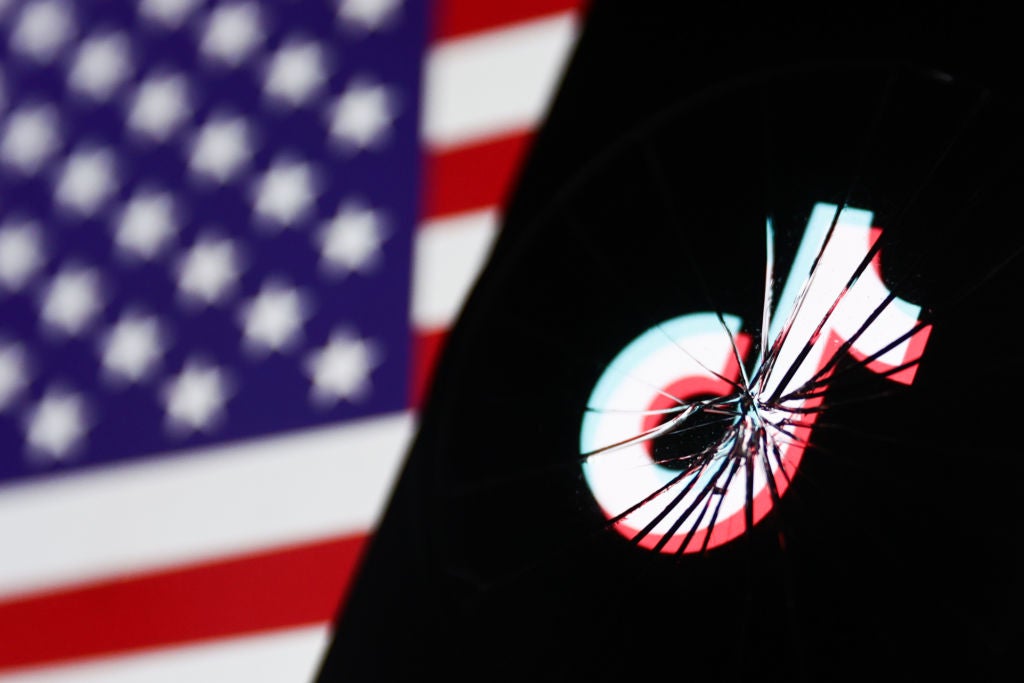
The looming deadline (19 January) of a US TikTok ban presents uncertainty for creators, consumers and businesses. Big brands have hitherto used TikTok to successfully reach its growing audience of GenZ consumers, a generation that relies on the platform for its news, entertainment and often its income.
The US Congress approved a ban, in April 2024, ordering TikTok’s Chinese parent company ByteDance to sell its US TikTok operations or shut down.

Access deeper industry intelligence
Experience unmatched clarity with a single platform that combines unique data, AI, and human expertise.
The Supreme Court is in the process of hearing arguments on whether to uphold the ban over national security concerns. A decision is expected before the 19 January deadline.
The deadline precedes President-elect Trump’s swearing into office by just a day. After his November 2024 presidential election win, Trump said publicly: “I have a warm spot in my heart for TikTok because I won youth by 34 points. And there are those who say TikTok has something to do with it.”
Politicking aside, what lies at the heart of the decision to ban TikTok is the issue of data privacy. Allegations that the Chinese government could access the data of US citizens through a Chinese owned company have been strongly rebutted by TikTok.
In a federal appeal against the ban, in August 2024, TikTok claimed that its content recommendation algorithm is stored in the US on cloud servers operated by Oracle and that content moderation decisions that affect the US are made within the country’s borders.

US Tariffs are shifting - will you react or anticipate?
Don’t let policy changes catch you off guard. Stay proactive with real-time data and expert analysis.
By GlobalDataReferring to the US Department of Justice, TikTok told the court: “It misstates where sensitive US user data resides – not in China, but in the secure Oracle cloud. It admits it has no evidence that China has ever accessed US user data.”
Whether national security and data privacy concerns are legitimate is for the supreme court and the incoming president to decide. What is clear, however, is that the faceless data brokers that buy and sell user data, unbeknown to the public, are embodied in the public perception of this case by the Chinese government.
Who benefits from a TikTok ban?
GlobalData’s Social Media Sector Scorecard for Q3 2024 noted that video content is driving change in social media. TikTok ‘s main competitors Instagram Reels, and YouTube remain popular as users increase their video consumption. In particular, Instagram continues to grow its viewer engagement and short-form videos, and in March 2024, it overtook TikTok as the most downloaded app.
If the TikTok ban is enforced and no domestic buyer is found, rival platforms like Instagram, Snapchat, and YouTube may well stand to benefit in terms of adding users.
But what of big brands rather than users? According to GlobalData Strategic Intelligence’s principal analyst Laura Petrone, big brands will struggle to find a similar, convenient video platform to use instead of TikTok.
“TikTok’s ecommerce feature, TikTok Shop, lets users buy products directly from the video. No other competitor can match this capability, not even Meta’s Instagram,” said Petrone.
However, Petrone noted that most of the impact will be felt by content creators and small businesses who have built their businesses using the app. “If the ban goes ahead, they will be hardest hit, as they might be forced to spend more on marketing elsewhere. They are also less able than big brands to diversify their marketing strategy,” said Petrone.
Reports emerged today (14 January) that the Chinese government is considering a sale of US TikTok to Elon Musk. Big brands have fled Musk’s X platform due to reputational risk arising from Musk’s free speech agenda which has seen the near elimination of content moderation.
Would the same be true of a Musk led US TikTok? While big brands might be assessing their plans carefully then and eventually looking for alternative platforms, without TikTok there aren’t many options of a moderated social environment left after Meta’s ditched fact-checking on its platforms.
The Facebook owner announced on 7 January that it was scrapping third-party fact-checking and reverting to the community notes model already used by X. “Google, which has dominated the advertising spending alongside Meta for a long time, might be viewed as the safest option, gaining market shares from both Meta and TikTok,” adds Petrone.







